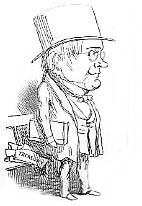
John Stone
John Stone is a Western Australian who, after gaining First Class Honours in Mathematical Physics for his B.Sc. degree and representing Western Australia (Under 21) at hockey, was selected as the Rhodes Scholar for W.A. for 1951.
At Oxford he was awarded First Class Honours in Politics, Philosophy and Economics (P.P.E.) and won the James Webb Medley Prize for Economics before joining the Australian Treasury in 1954.
Over a Treasury career of 30 years he served as Australia's Executive Director in the Executive Boards of both the I.M.F. and the World Bank in Washington, D.C. during 1967-70; as a Deputy Secretary of the Treasury during 1971-79; and as Secretary to the Treasury during 1979-84 -- for the last 18 months of that time, under Paul Keating as Treasurer. In September, 1984 he resigned from that office, and from the Commonwealth Public Service.
In 1972 he was elected a Fellow of the Australian Academy of the Social Sciences (FAASS), but resigned his Fellowship in 1983 in disgust at the quality of the Academy's proceedings.
Since 1984 he has been at one time or another a Professor at Monash University; a newspaper columnist; a public affairs television show participant; a company director; a Senator for Queensland and Leader of the National Party in the Senate; and Shadow Minister for Finance in both the Howard and Peacock Shadow Cabinets (1987-90).
In 1986 he was one of the founders of the H R Nicholls Society to promote debate about trade union monopoly power and the need for labour market deregulation.
In 1992 he was the principal founder of The Samuel Griffith Society to promote debate about the Australian Constitution from a federalist (i.e., anti-centralist) point of view. He has served since its foundation as the Society's Conference Convenor, and as the Editor and Publisher of its Proceedings, Upholding the Australian Constitution, Volumes 1-14 (to date).
In 1996-97 he served as a member of the Committee appointed by the then Minister for Defence to enquire into the efficiency and effectiveness of the Australian Defence Force (the Defence Efficiency Review). Today, he contributes occasional newspaper articles on economic and political questions and remains, more generally, a contributor to the public affairs debate.
John Stone and his wife, Dr Nancy Stone have been married since 1954, and have five children (one daughter, four sons) and eleven grandchildren.
I am delighted to welcome a new contributor in the Guest Room. As Bryan Magee brings a touch of raffish and worldly class to the generally bookish and retiring philosophers, John Stone brings a wealth of practical experience at the highest levels of public administration and politics. As a bonus, those who have been seriously involved in playing sport, or just watching it, will be pleased to note his achievement in that arena.
John Stone is a major figure in the Australian resurgence of classical (non-socialist) liberalism, not only with publications such as the paper which is reproduced here, but also as a prime mover in two important organisations, The H R Nicholls Society and The Samuel Griffiith Society.
The paper of special importance that is reproduced here is John's paper titled Deregulate of Perish which he delivered in 1985 to the W A branch of the Australian Small Business Association.